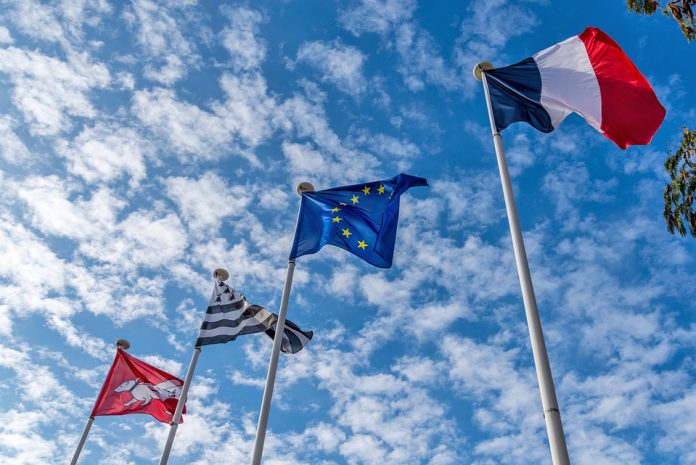During the first half of this year, France is holding the Presidency of the EU Council, and it is not merely content with obstructing progress on trade deals the EU is currently negotiating. According to Politico, France is keen to introduce “mirror measures” in all future trade deals, which means that trade partners would commit to mirroring the EU’s own production standards.
This is quite a departure from normal trade practises, which do not involve trade partners effectively taking over the regulatory choices of the European Union, but merely require to comply with minimum standards, for example phytosanitary standards for food.
In a reaction, French Agriculture Minister Julien Denormandie removes any doubt about what France wants: “Europe must impose its standards on others and not have others’ standards imposed on it”, adding he was on a “veritable crusade” to convince other EU member states.
One EU trade diplomat dares to speak the obvious: “It’s very difficult to see how this would work.”
Indeed, these kinds of delusions of grandeur will obviously fail spectacularly in the real world – apart from the fact that such a policy simply violates WTO rules. Australia, South Africa, Vietnam or Brazil aren’t jumping to outsource their regulatory choices to Brussels.
However, such an arrangement may destroy existing trade arrangements, as these need an update once every so often.
Deforestation
The French Presidency is particularly keen to oblige non-European farmers to raise their standards to the European benchmark in contentious areas like pesticides, animal antibiotics and deforestation. Especially the latter gets a lot of attention in the programme presented by the French EU Presidency, which vows to “launch work on the [EU] regulation on deforestation-free imports, which will be a significant step towards greater account being taken of production standards for imported products.”
It notes that “this initiative will enable the European Union to prevent products resulting from deforestation being placed on the European market, to bolster efforts to reduce its environmental footprint and to encourage the protection and restoration of forests at the global level, in line with the agroecological transition the EU is promoting within its borders.”
This is all rather hypocritical.
First of all, it can be doubted whether the EU is doing such a great job when it comes to deforestation. With its agricultural spending and in particular subsidies to farmers still amounting to around one fourth of its 1.1 trillion euro 2021-2027 budget, the EU heavily subsidizes intensive agriculture, as 80% of that cash goes to 20% of the recipients. As pointed out by Dutch NGO Fern, which is dedicated to fighting deforestation, the EU Common Agricultural Policy (CAP) has furthermore “encouraged the expansion of soybean cultivation, as European farmers rely on imported soy from Brazil, Argentina and Paraguay to use as animal feed.”
Secondly, the Commission’s deforestation proposal is anything but targeted. It rather mindlessly lumps all imports together, targeting what it calls “the main products linked to deforestation like soy, beef, palm oil, timber, cocoa and coffee”, without taking into account regional differences, imposing a whole range of new bureaucratic formalities on importers of such products.
The lack of a more targeted approach overlooks that during the last ten years, deforestation has mainly been a problem in Africa and South America. As UN body FAO puts it, “annually South America had a net forest loss of 2.6 million ha in 2010–2020. The rate of net forest loss has declined substantially in South America, to about half the rate in 2010–2020 compared with 2000–2010.”
Meanwhile, “Asia had the highest net gain of forest area in 2010–2020.” Asia includes Indonesia and Malaysia, which have a thriving palm oil industry that may be heavily burdened by the EU’s newly proposed policy.
Strengthening property rights as a better alternative
The core of the deforestation problem seems to originate in poorly defined property rights. At least that’s where Rolf Skar, Special Projects Manager at Greenpeace and the libertarian Cato Institute’s Nobel Prize-winning economist, Hernando de Soto, agree.
A 2008 academic paper by French University of Clermont Auvergne scholars explains this dynamic:
“Deforestation is considered as a risk management strategy: property rights insecurity reduces the present value of forests and fosters forest conversion into agricultural and pasture lands. Moreover, deforestation is the consequence of strategic interactions between landowners and squatters. Landowners clear the forest preventively in order to assert the productive use of land and to reduce the expropriation risk.”
While the situation in Brazil seems to worsen, there are “bright spots of hope for forests in Indonesia and Malaysia”, according to the World Resources Institute, which notes:
“Indonesia’s rate of primary forest loss decreased for the fourth year in a row in 2020, one of only a few countries to do so. Indonesia also dropped out of the top three countries for primary forest loss for the first time since our record-keeping began. (…) Primary forest loss also declined in Malaysia for the fourth year in a row.”
This may be the result of industry commitments. Also, according to an analysis by NGO Global Canopy, among all the commodities that are linked to deforestation, commitments to achieve at least zero-net deforestation” are more common in palm oil supply chains (72% of companies have made a deforestation commitment) than other commodities including pulp and paper (49%), soy (40%), beef (30%) and leather (28%).” This can serve as yet more evidence that an expanding economic sector will tend to have an interest in making its production process more sustainable.
Some environmental organizations, like WWF, have opted for the path to target unsustainable practices to produce commodities rather than going after the commodities themselves and have even highlighted the “huge potential for five Asian markets to boost sustainable palm oil consumption”. This most certainly is a preferable approach to the EU’s, which may ultimately be rooted in protectionism, when looking at how French farmers blocked Total refineries a few years ago, protesting against its decision to import cheaper palm oil for its biofuel plant.
Conclusion
The French push to impose the EU’s regulatory policy choices on its trading partners, in a bid to counter things like deforestation, is not only hypocritical, given the EU’s own track record, but it may also be a fig leaf for another round of protectionism, as this is certain to prevent new trade deals and may even disrupt current trade flows.
It also threatens to backfire and hurt the cause it is supposed to support. Ultimately, trade and better protection of property rights help to lift up both standards of living and production standards in other parts of the world. Economic development and care for the environment tend to go hand in hand.













